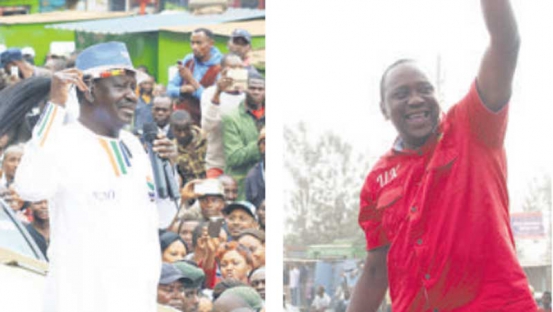×
The Standard e-Paper
Join Thousands Daily

With the elections just 8 days away, the main political players are on the final stretch of a tortuous campaign that started way before the final whistle was blown.
Both President Uhuru Kenyatta and National Super Alliance (NASA) presidential candidate Raila Odinga are leaving nothing to chance in their pursuit to convince voters why they are the right candidate for the job.